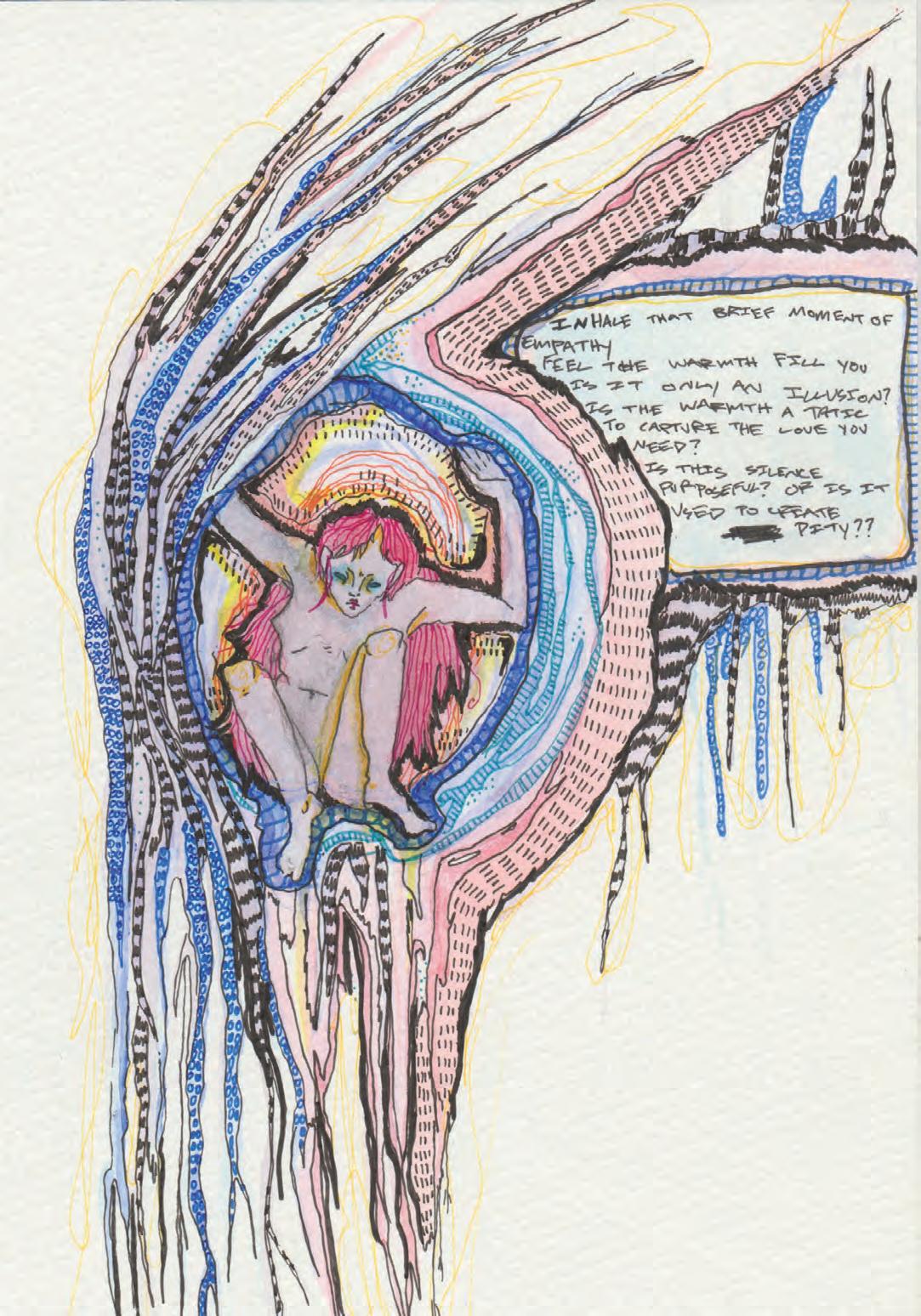
3 minute read
A Deeply Rooted Image
Maya Shrivastav // sophomore personal essay
An assumption starts like a seed. Planted in our heads, watered by endless rains of flat and meaningless words said without a thought to what they convey, of a million stereotypes thrown around thoughtlessly, even used as compliments at times. It grows and grows, forming its roots in society, making itself known as “truth,” and sometimes by the time we realize it, it’s grown so deeply-rooted that we can’t ever fully cut it out.
Advertisement
It can be as simple as a thought that pops into your head when you see someone, or as complex as a harmful stereotype that rears its ugly head wherever you look. It can be negative or positive, or somewhere in between. Assumptions can feel like warm light on sun-kissed skin, a comfortable familiarity, or they can hit right where it hurts, like a slap to the face, painting a story of who I am without even knowing me, without seeing the complexity of the human mind and understanding the millions of different aspects that make me, me.
It begins with one that is frankly rather well known: the stereotypically flawless, intelligent kid who’s in all advanced classes, interested in something intellectual when she grows up, the academically perfect one. A compliment, I suppose, sometimes, but it is more harmful than they all realize.
I see it, plain as day in everyone’s face as they see me — I am meant to be that perfect girl, the one who never once gets overwhelmed, nor does she ever run out of time or sit there for hours with a blank page, distracted and unfocused. Nobody says it, but the stereotype isn’t a positive compliment, as it places that much more pressure on me to force myself to work, to spend hours and hours solving problems and typing answers and not ever taking a moment to step back and realize, this isn’t me.
In fact, that girl, the perfect one, is nobody. Nobody is perfect — everyone struggles, everyone is human, and with humanity inherently comes imperfection, which isn’t necessarily a bad thing. It is imperfection that divides the consciousness of human beings from computer programs, even those made to mimic that sentience.
I am not that girl, and nobody is, and I know that. And yet, there is this pressure on those of us who happen to enjoy learning and get good grades, on those of us who’d like to sit down with a good book or write something in our free time, just to be that image of perfection.
On the surface, it is what it seems, but when I look in the mirror, that is not the person I see. But it isn’t the only assumption made of me — there are far more, and we don’t always realize when we make those assumptions about our peers and those around us. In fact, we do it rather involuntarily at times: take a glance at someone and develop our first impressions of them based on how they look, how they act, who they’re with, what they wear — you name it, humanity judges, even when we don’t know we’re doing it. We are a species that always judges unconsciously. We have our biases in our heads, learned from who we are with, strengthened by what we see in the media — no matter whether we see them in every thought or not.
I am a member of the LGBTQ+ community. I have rather openly discussed gender and sexuality and am always looking for representation — to find characters in books and movies who I can resonate and connect with.
But I look at books and see characters who are flat, meaningless, defined only by their gender and their sexuality. That their entire character is reduced to the simplicity of them being gay or lesbian or transgender. That the entire plot of the story revolves around their ‘discovery’ of the fact — but not often the portrayal of a nonbinary character going through a normal life, or adventuring on a quest through a fantasy realm or exploring the future within a dystopian or science-fiction world.
That, in and of itself, is an assumption, a stereotypical “single story.” It is not a representation of who we are, we being the real LGBTQ+ students at this school or outside. It is a two-dimensional portrayal of me and of all the others like me out there, questioning our gender identity and attraction and wanting to read about people like us.
Of course, sometimes people think it is all for good, that they are complimenting us for our academics or being representative or to pity those they see as being underprivileged. But the truth that some don’t see is that there is danger in labeling people with one single story. Even if it is ‘positive,’ when you formulate this stereotypical perception of someone, all you can ever see when you look at them is not their own face, the uniqueness of their looks and their personality and the way they are, how we are like snowflakes — one community, one species, and yet not a single one the same as another — but only what they’re meant to be according to the seeds of assumption that we’ve all grown.










